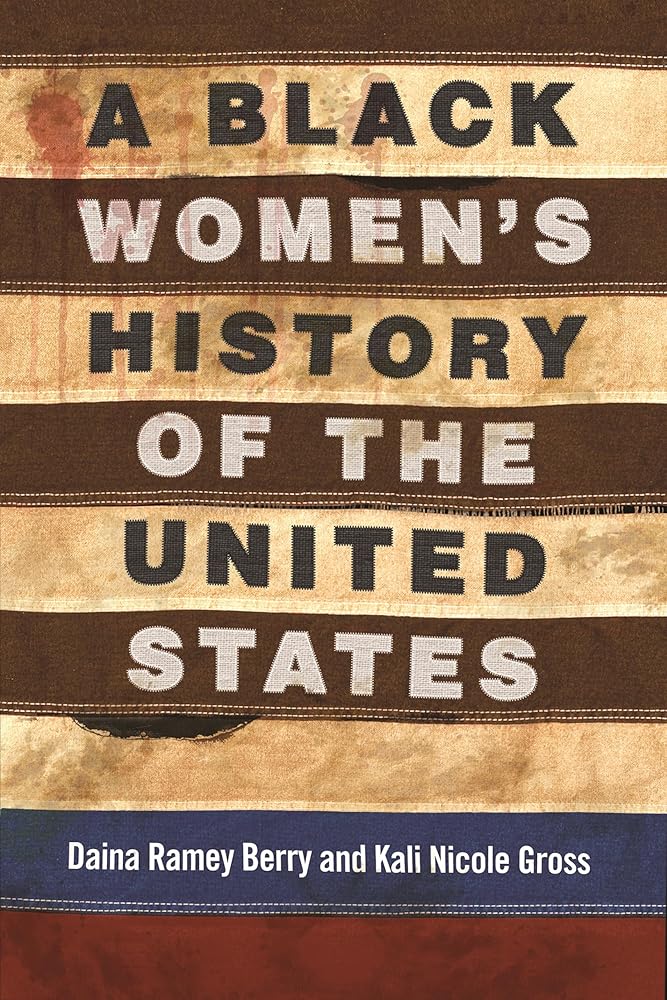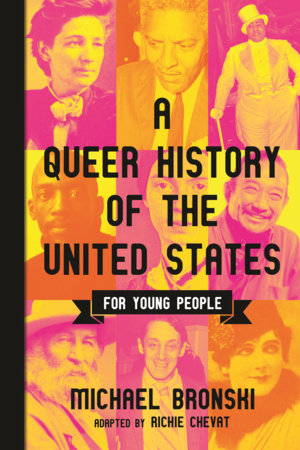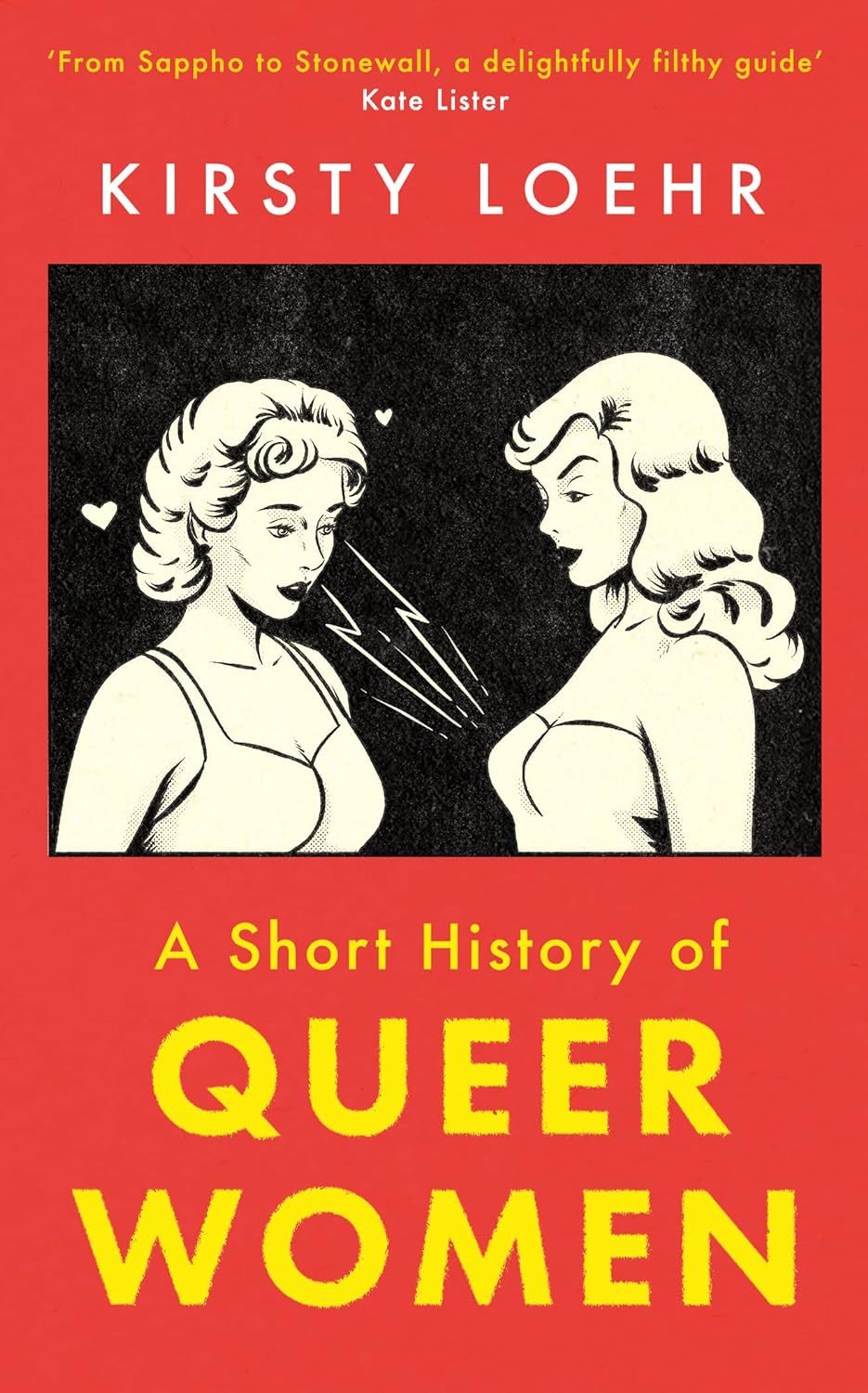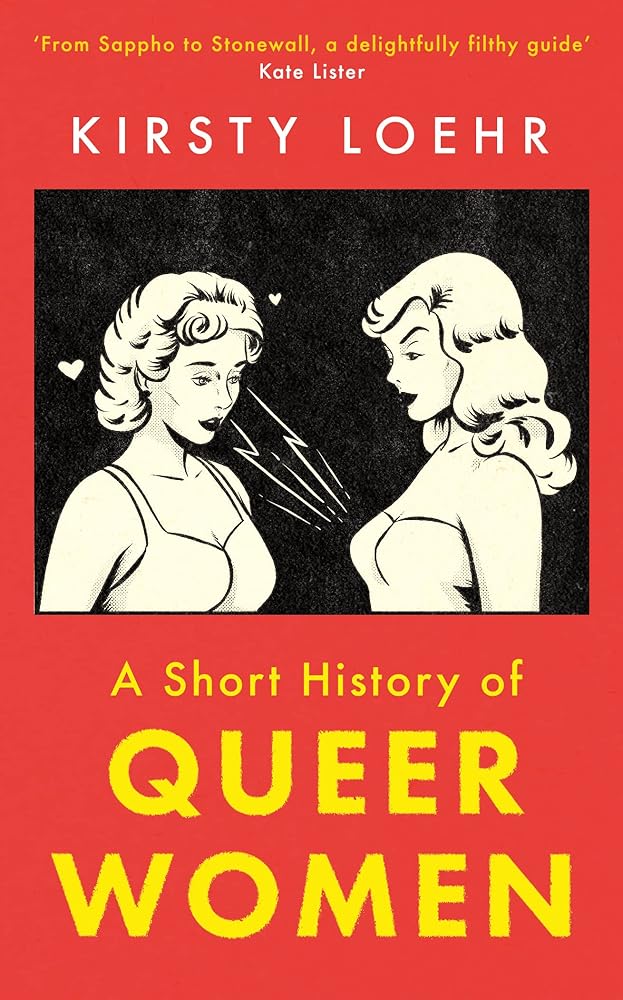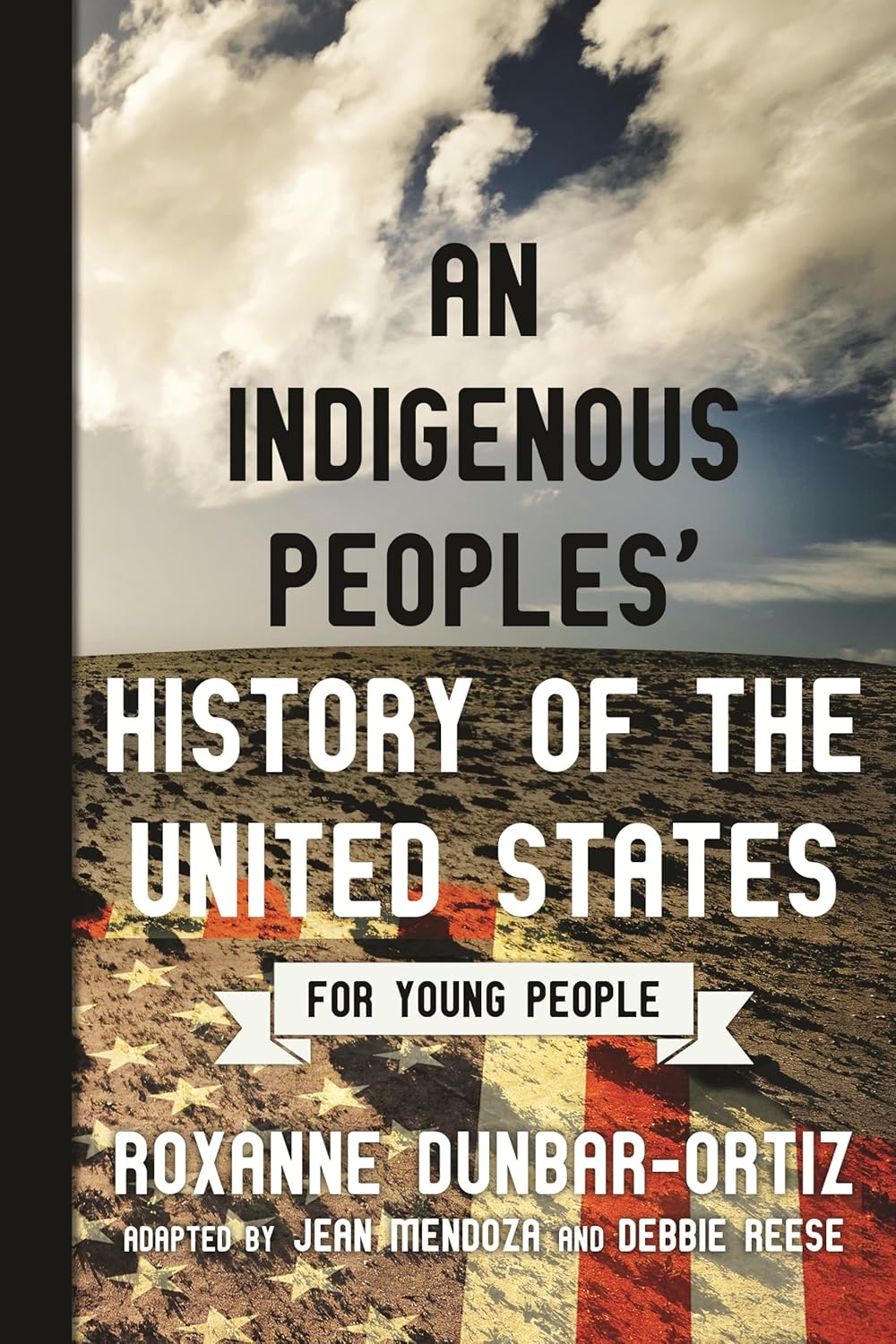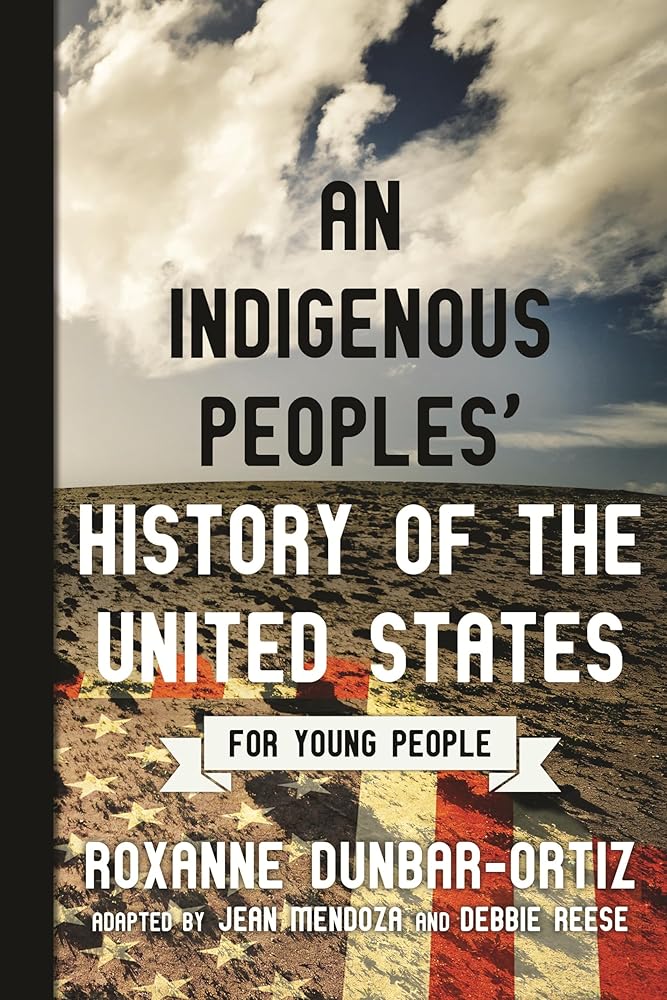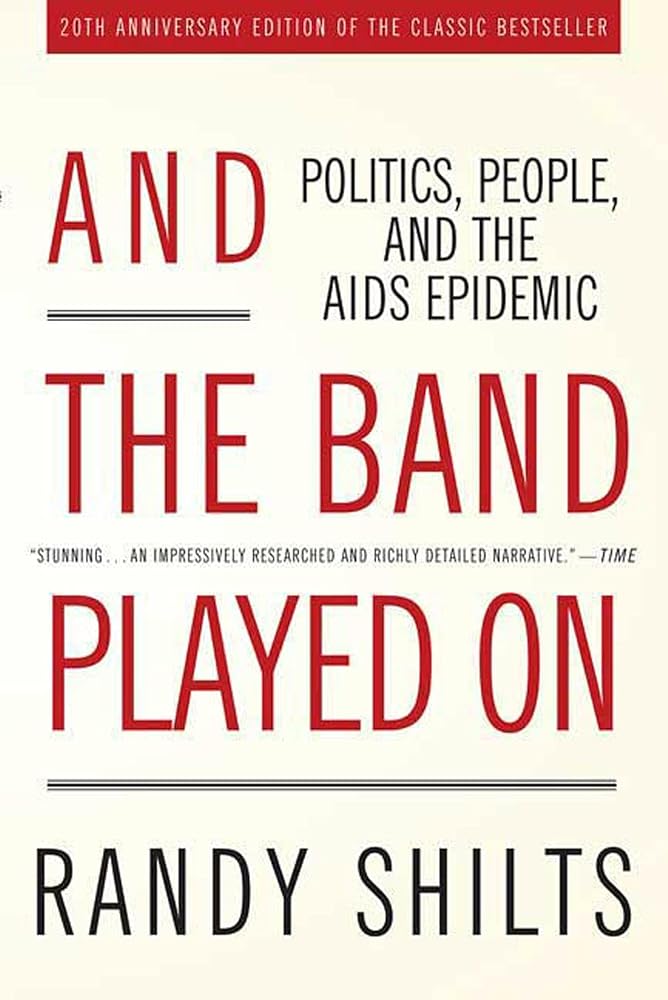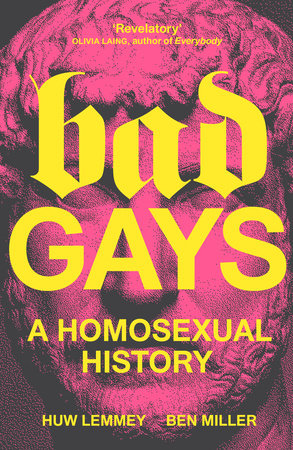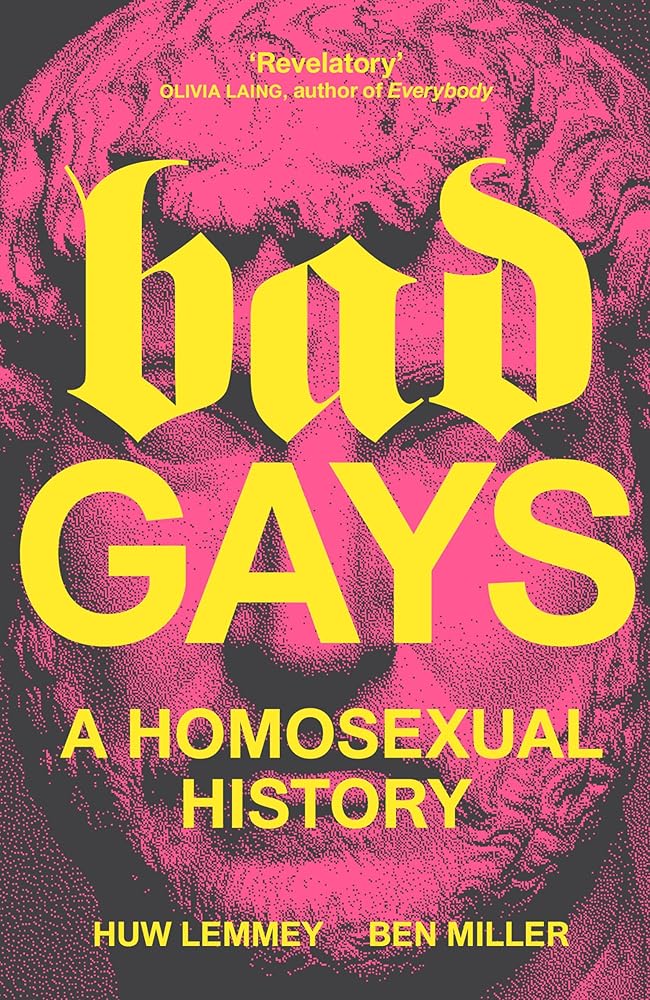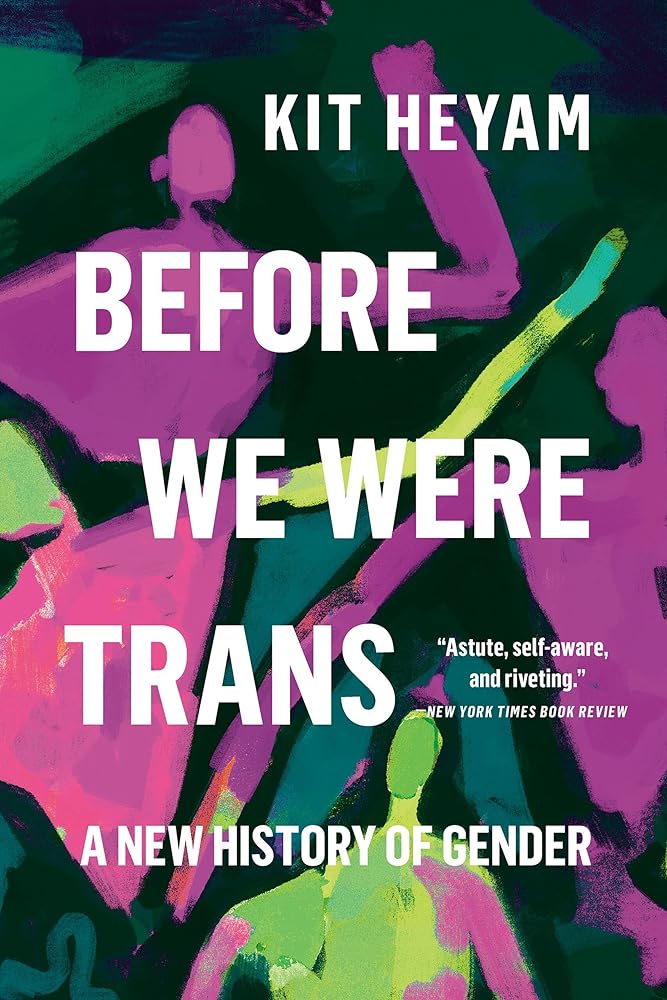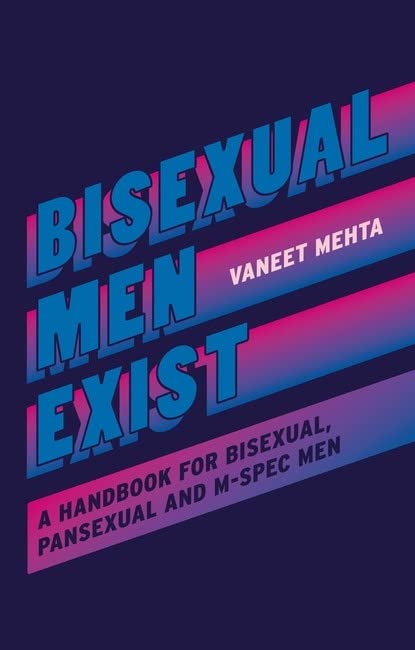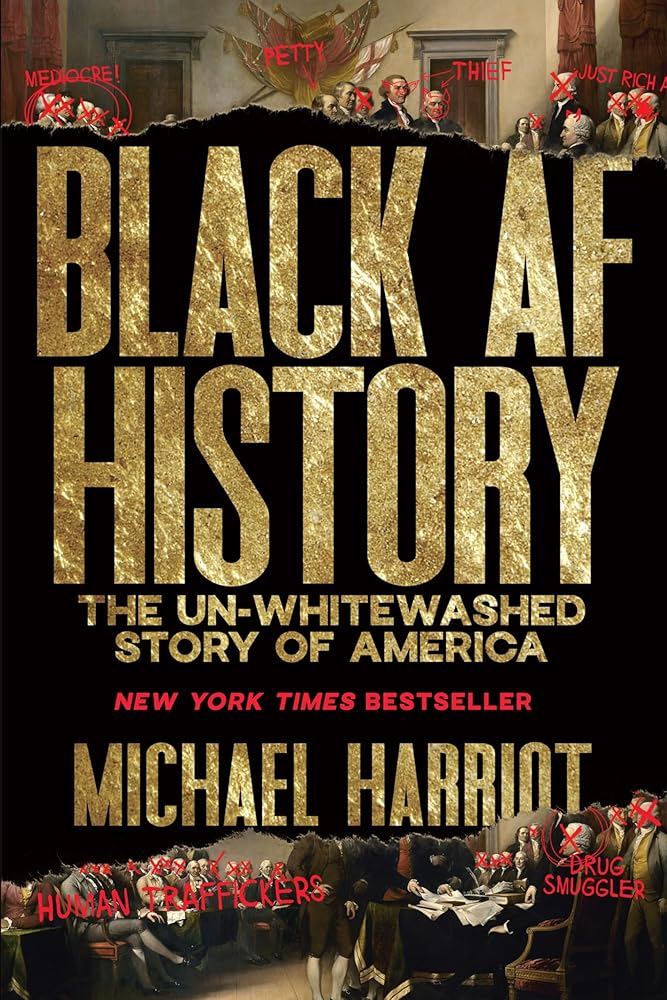Sort by:
39 of 2234 products
39 of 2234 products
The first-ever Black history to center queer voices, this landmark study traces the lives of LGBTQ+ Black Americans from slavery to present day
Gender and sexual expression have always been part of the Black freedom struggle
In this latest book in Beacon’s award-winning ReVisioning History series, Professors C. Riley Snorton and Darius Bost unearth the often overlooked history of the Black queer community in the United States.
Arguing that both gender and sexual expression have been an intimate and intricate part of Black freedom struggle, Snorton and Bost present historical contributions of Black queer, trans, and gender non-conforming Americans from slavery to the present day to highlight how the fight against racial injustice has always been linked to that of sexual and gender justice.
Interweaving stories of queer and trans figures such as:
* Private William Cathay/Cathay Williams, born female but enlisted in the Army as a man in the mid-1860s
* Josephine Baker, internationally known dancer and entertainer of the early 20th century who was also openly bisexual
* Bayard Rustin, prominent Civil Rights activist whose well known homosexuality was viewed as a potential threat to the movement
* Amanda Milan, a black trans woman whose murder in 2000 unified the trans people of color community,
this book includes a deep dive into the marginalization, unjust criminalization, and government legislation of Black queer and trans existence. It also shows how Black Americans have played an integral role in the modern LGBTQ rights movement, countering narratives that have predominantly focused on white Americans.
Through storytelling and other narratives, Snorton and Bost show how the Black queer community has always existed, regardless of the attempts to stamp it out, and how those in it continue to fight for their rightful place in the world.
The award-winning Revisioning American History series continues with this “groundbreaking new history of Black women in the United States” (Ibram X. Kendi)—the perfect companion to An Indigenous People’s History of the United States and An African American and Latinx History of the United States.
An empowering and intersectional history that centers the stories of African American women across 400+ years, showing how they are—and have always been—instrumental in shaping our country.
In centering Black women’s stories, two award-winning historians seek both to empower African American women and to show their allies that Black women’s unique ability to make their own communities while combatting centuries of oppression is an essential component in our continued resistance to systemic racism and sexism. Daina Ramey Berry and Kali Nicole Gross offer an examination and celebration of Black womanhood, beginning with the first African women who arrived in what became the United States to African American women of today.
A Black Women’s History of the United States reaches far beyond a single narrative to showcase Black women’s lives in all their fraught complexities. Berry and Gross prioritize many voices: enslaved women, freedwomen, religious leaders, artists, queer women, activists, and women who lived outside the law. The result is a starting point for exploring Black women’s history and a testament to the beauty, richness, rhythm, tragedy, heartbreak, rage, and enduring love that abounds in the spirit of Black women in communities throughout the nation.
A “riveting” and “indispensable” (Alison Bechdel) cultural history of queer women’s lives in the second half of the twentieth century, told through six iconic spaces
For as long as queer women have existed, they’ve created gathering grounds where they can be themselves. From the intimate darkness of the lesbian bar to the sweaty camaraderie of the softball field, these spaces aren’t a luxury—they’re a necessity for queer women defining their identities. In A Place of Our Own, journalist June Thomas invites readers into six iconic lesbian spaces over the course of the last sixty years, including the rural commune, the sex toy boutique, the vacation spot, and the feminist bookstore.
Thomas blends her own experiences with archival research and rare interviews with pioneering figures like Elaine Romagnoli, Susie Bright, and Jacqueline Woodson. She richly illustrates the lives of the business owners, entrepreneurs, activists, and dreamers who shaped the long struggle for queer liberation. Thomas illuminates what is gained and lost in the shift from the exclusive, tight-knit women’s spaces of the ’70s toward today’s more inclusive yet more diffuse LGBTQ+ communities.
At once a love letter, a time capsule, and a bridge between generations of queer women, A Place of Our Own brings the history—and timeless present—of the lesbian community to vivid life.
Named one of the Best Nonfiction Books of 2019 by School Library Journal
Queer history didn’t start with Stonewall. This book explores how LGBTQ people have always been a part of our national identity, contributing to the country and culture for over 400 years.
It is crucial for lesbian, gay, bisexual, transgender, and queer youth to know their history. But this history is not easy to find since it’s rarely taught in schools or commemorated in other ways. A Queer History of the United States for Young People corrects this and demonstrates that LGBTQ people have long been vital to shaping our understanding of what America is today.
Through engrossing narratives, letters, drawings, poems, and more, the book encourages young readers, of all identities, to feel pride at the accomplishments of the LGBTQ people who came before them and to use history as a guide to the future. The stories he shares include those of
* Indigenous tribes who embraced same-sex relationships and a multiplicity of gender identities.
* Emily Dickinson, brilliant nineteenth-century poet who wrote about her desire for women.
* Gladys Bentley, Harlem blues singer who challenged restrictive cross-dressing laws in the 1920s.
* Bayard Rustin, Dr. Martin Luther King Jr.’s close friend, civil rights organizer, and an openly gay man.
* Sylvia Rivera, cofounder of STAR, the first transgender activist group in the US in 1970.
* Kiyoshi Kuromiya, civil rights and antiwar activist who fought for people living with AIDS.
* Jamie Nabozny, activist who took his LGBTQ school bullying case to the Supreme Court.
* Aidan DeStefano, teen who brought a federal court case for trans-inclusive bathroom policies.
* And many more!
With over 60 illustrations and photos, a glossary, and a corresponding curriculum, A Queer History of the United States for Young People will be vital for teachers who want to introduce a new perspective to America’s story.
Queer women have always existed – let’s put them back in the history books
No, they weren’t ‘just friends’!
Queer women have been written out of history since, well, forever. ‘But historians famously care about women!’, said no one. From Anne Bonny and Mary Read who sailed the seas together disguised as pirates, to US football captain Megan Rapinoe declaring ‘You can’t win a championship without gays on your team’, via countless literary salons and tuxedos, A Short History of Queer Women sets the record straight on women who have loved other women through the ages.
Who says lesbians can’t be funny?

An African American and Latinx History of the United States (ReVisioning History)
$18.95
Unit price perAn African American and Latinx History of the United States (ReVisioning History)
$18.95
Unit price perAn intersectional history of the shared struggle for African American and Latinx civil rights
Spanning more than two hundred years, An African American and Latinx History of the United States is a revolutionary, politically charged narrative history, arguing that the “Global South” was crucial to the development of America as we know it. Scholar and activist Paul Ortiz challenges the notion of westward progress as exalted by widely taught formulations like “manifest destiny” and “Jacksonian democracy,” and shows how placing African American, Latinx, and Indigenous voices unapologetically front and center transforms US history into one of the working class organizing against imperialism.
Drawing on rich narratives and primary source documents, Ortiz links racial segregation in the Southwest and the rise and violent fall of a powerful tradition of Mexican labor organizing in the twentieth century, to May 1, 2006, known as International Workers’ Day, when migrant laborers—Chicana/os, Afrocubanos, and immigrants from every continent on earth—united in resistance on the first “Day Without Immigrants.” As African American civil rights activists fought Jim Crow laws and Mexican labor organizers warred against the suffocating grip of capitalism, Black and Spanish-language newspapers, abolitionists, and Latin American revolutionaries coalesced around movements built between people from the United States and people from Central America and the Caribbean. In stark contrast to the resurgence of “America First” rhetoric, Black and Latinx intellectuals and organizers today have historically urged the United States to build bridges of solidarity with the nations of the Americas.
Incisive and timely, this bottom-up history, told from the interconnected vantage points of Latinx and African Americans, reveals the radically different ways that people of the diaspora have addressed issues still plaguing the United States today, and it offers a way forward in the continued struggle for universal civil rights.
2018 Winner of the PEN Oakland/Josephine Miles Literary Award
The first intersectional history of the Black and Native American struggle for freedom in our country that also reframes our understanding of who was Indigenous in early America
Beginning with pre-Revolutionary America and moving into the movement for Black lives and contemporary Indigenous activism, Afro-Indigenous historian Kyle T. Mays argues that the foundations of the US are rooted in antiblackness and settler colonialism, and that these parallel oppressions continue into the present. He explores how Black and Indigenous peoples have always resisted and struggled for freedom, sometimes together, and sometimes apart. Whether to end African enslavement and Indigenous removal or eradicate capitalism and colonialism, Mays show how the fervor of Black and Indigenous peoples calls for justice have consistently sought to uproot white supremacy.
Mays uses a wide-array of historical activists and pop culture icons, “sacred” texts, and foundational texts like the Declaration of Independence and Democracy in America. He covers the civil rights movement and freedom struggles of the 1960s and 1970s, and explores current debates around the use of Native American imagery and the cultural appropriation of Black culture. Mays compels us to rethink both our history as well as contemporary debates and to imagine the powerful possibilities of Afro-Indigenous solidarity.
Includes an 8-page photo insert featuring Kwame Ture with Dennis Banks and Russell Means at the Wounded Knee Trials; Angela Davis walking with Oren Lyons after he leaves Wounded Knee, SD; former South African president Nelson Mandela with Clyde Bellecourt; and more.
New York Times Bestseller
Now part of the HBO docuseries "Exterminate All the Brutes," written and directed by Raoul Peck
Recipient of the American Book Award
The first history of the United States told from the perspective of indigenous peoples
Today in the United States, there are more than five hundred federally recognized Indigenous nations comprising nearly three million people, descendants of the fifteen million Native people who once inhabited this land. The centuries-long genocidal program of the US settler-colonial regimen has largely been omitted from history. Now, for the first time, acclaimed historian and activist Roxanne Dunbar-Ortizoffers a history of the United States told from the perspective of Indigenous peoples and reveals how Native Americans, for centuries, actively resisted expansion of the US empire.
With growing support for movements such as the campaign to abolish Columbus Day and replace it with Indigenous Peoples’ Day and the Dakota Access Pipeline protest led by the Standing Rock Sioux Tribe, An Indigenous Peoples’ History of the United States is an essential resource providing historical threads that are crucial for understanding the present. In An Indigenous Peoples’ History of the United States, Dunbar-Ortiz adroitly challenges the founding myth of the United States and shows how policy against the Indigenous peoples was colonialist and designed to seize the territories of the original inhabitants, displacing or eliminating them. And as Dunbar-Ortiz reveals, this policy was praised in popular culture, through writers like James Fenimore Cooper and Walt Whitman, and in the highest offices of government and the military. Shockingly, as the genocidal policy reached its zenith under President Andrew Jackson, its ruthlessness was best articulated by US Army general Thomas S. Jesup, who, in 1836, wrote of the Seminoles: “The country can be rid of them only by exterminating them.”
Spanning more than four hundred years, this classic bottom-up peoples’ history radically reframes US history and explodes the silences that have haunted our national narrative.
An Indigenous Peoples' History of the United States is a 2015 PEN Oakland-Josephine Miles Award for Excellence in Literature.
2020 American Indian Youth Literature Young Adult Honor Book
2020 Notable Social Studies Trade Books for Young People,selected by National Council for the Social Studies (NCSS) and the Children’s Book Council
2019 Best-Of Lists: Best YA Nonfiction of 2019 (Kirkus Reviews) · Best Nonfiction of 2019 (School Library Journal) · Best Books for Teens (New York Public Library) · Best Informational Books for Older Readers (Chicago Public Library)
Spanning more than 400 years, this classic bottom-up history examines the legacy of Indigenous peoples’ resistance, resilience, and steadfast fight against imperialism.
Going beyond the story of America as a country “discovered” by a few brave men in the “New World,” Indigenous human rights advocate Roxanne Dunbar-Ortiz reveals the roles that settler colonialism and policies of American Indian genocide played in forming our national identity.
The original academic text is fully adapted by renowned curriculum experts Debbie Reese and Jean Mendoza, for middle-grade and young adult readers to include discussion topics, archival images, original maps, recommendations for further reading, and other materials to encourage students, teachers, and general readers to think critically about their own place in history.
Upon its first publication more than twenty years ago, And the Band Played on was quickly recognized as a masterpiece of investigative reporting.
An international bestseller, a nominee for the National Book Critics Circle Award, and made into a critically acclaimed movie, Shilts' expose revealed why AIDS was allowed to spread unchecked during the early 80's while the most trusted institutions ignored or denied the threat. One of the few true modern classics, it changed and framed how AIDS was discussed in the following years. Now republished in a special 20th Anniversary edition, And the Band Played On remains one of the essential books of our time.
An inclusive and landmark history, emphasizing how essential Asian American experiences are to any understanding of US history
Original and expansive, Asian American Histories of the United States is a nearly 200-year history of Asian migration, labor, and community formation in the US. Reckoning with the onset of the COVID-19 pandemic and the surge in anti-Asian hate and violence, award-winning historian Catherine Ceniza Choy presents an urgent social history of the fastest growing group of Americans. The book features the lived experiences and diverse voices of immigrants, refugees, US-born Asian Americans, multiracial Americans, and workers from industries spanning agriculture to healthcare.
Despite significant Asian American breakthroughs in American politics, arts, and popular culture in the twenty-first century, a profound lack of understanding of Asian American history permeates American culture. Choy traces how anti-Asian violence and its intersection with misogyny and other forms of hatred, the erasure of Asian American experiences and contributions, and Asian American resistance to what has been omitted are prominent themes in Asian American history. This ambitious book is fundamental to understanding the American experience and its existential crises of the early twenty-first century.
These “very funny-deep dives into the lives of the most dastardly queer people in history” offer a passionate argument for rethinking gay politics beyond identity (Vogue).
What can we learn from the homosexual villains, failures, and baddies of our past?
We all remember Oscar Wilde, but who speaks for Bosie? What about those ‘bad gays’ whose unexemplary lives reveal more than we might expect? Many popular histories seek to establish homosexual heroes, pioneers, and martyrs but, as Huw Lemmey and Ben Miller argue, the past is filled with queer people whose sexualities and dastardly deeds have been overlooked despite their being informative and instructive.
Based on the hugely popular podcast series of the same name, Bad Gays asks what we can learn about LGBTQ+ history, sexuality and identity through its villains, failures, and baddies. With characters such as the Emperor Hadrian, anthropologist Margaret Mead and notorious gangster Ronnie Kray, the authors tell the story of how the figure of the white gay man was born, and how he failed. They examine a cast of kings, fascist thugs, artists and debauched bon viveurs. Imperial-era figures Lawrence of Arabia and Roger Casement get a look-in, as do FBI boss J. Edgar Hoover, lawyer Roy Cohn, and architect Philip Johnson.
Together these amazing life stories expand and challenge mainstream assumptions about sexual identity: showing that homosexuality itself was an idea that emerged in the 19th century, one central to major historical events.
Bad Gays is a passionate argument for rethinking gay politics beyond questions of identity, compelling readers to search for solidarity across boundaries.
A “vital” (New York Times Book Review), groundbreaking global history of gender nonconformity
Today’s narratives about trans people tend to feature individuals with stable gender identities that fit neatly into the categories of male or female. Those stories, while important, fail to account for the complex realities of many trans people’s lives.
Before We Were Trans illuminates the stories of people across the globe, from antiquity to the present, whose experiences of gender have defied binary categories. Blending historical analysis with sharp cultural criticism, trans historian and activist Kit Heyam chronicles expressions of trans experience that are often left out of the historical record. Drawing on their own experience of transition and gender nonbinarism, Heyam reveals that what constitutes a man, a woman, or gender itself has continually been defined, contested, and redefined.
A groundbreaking, radically inclusive trans history, Before We Were Trans reflects the richness of modern trans reality more closely than any previously written—and looks to the past to uncover new horizons for possible trans futures.
By: Vaneet Mehta (Author), 2023, Paperback
"You're just being greedy."
"Are you sure you're not gay?"
"Pick a side."
Being a bisexual man isn't easy - something Vaneet Mehta knows all too well. After spending more than a decade figuring out his identity, Vaneet's coming out was met with questioning, ridicule and erasure. This experience inspired Vaneet to create the viral #BisexualMenExist campaign, combatting the hate and scepticism m-spec (multi-gender attracted spectrum) men encounter, and helping others who felt similarly alone and trapped.
This powerful book is an extension of that fight. Navigating a range of topics, including coming out, dating, relationships and health, Vaneet shares his own lived experience as well as personal stories from others in the community to help validate and uplift other bisexual men. Discussing the treatment of m-spec men in LGBTQ+ places, breaking down stereotypes and highlighting the importance of representation and education, this empowering book is a rallying call for m-spec men everywhere.
NEW YORK TIMES BESTSELLER * NAACP IMAGE AWARD NOMINEE * AMAZON'S TOP 20 HISTORY BOOKS OF 2023 * B&N BEST OF EDUCATIONAL HISTORY * THE ROOT'S BEST BOOKS OF 2023 * CHICAGO PUBLIC LIBRARY FAVORITE BOOKS OF 2023
From acclaimed columnist and political commentator Michael Harriot, a searingly smart and bitingly hilarious retelling of American history that corrects the record and showcases the perspectives and experiences of Black Americans.
America’s backstory is a whitewashed mythology implanted in our collective memory. It is the story of the pilgrims on the Mayflower building a new nation. It is George Washington’s cherry tree and Abraham Lincoln’s log cabin. It is the fantastic tale of slaves that spontaneously teleported themselves here with nothing but strong backs and negro spirituals. It is a sugarcoated legend based on an almost true story.
It should come as no surprise that the dominant narrative of American history is blighted with errors and oversights—after all, history books were written by white men with their perspectives at the forefront. It could even be said that the devaluation and erasure of the Black experience is as American as apple pie.
In Black AF History, Michael Harriot presents a more accurate version of American history. Combining unapologetically provocative storytelling with meticulous research based on primary sources as well as the work of pioneering Black historians, scholars, and journalists, Harriot removes the white sugarcoating from the American story, placing Black people squarely at the center. With incisive wit, Harriot speaks hilarious truth to oppressive power, subverting conventional historical narratives with little-known stories about the experiences of Black Americans. From the African Americans who arrived before 1619 to the unenslavable bandit who inspired America’s first police force, this long overdue corrective provides a revealing look into our past that is as urgent as it is necessary. For too long, we have refused to acknowledge that Americanhistory is white history. Not this one. This history is Black AF.


